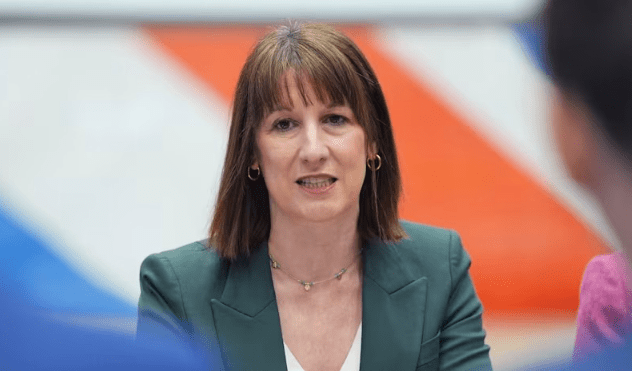Rachel Reeves Faces Backlash Over Heathrow Expansion Amid Mounting Economic and Environmental Doubts
Chancellor Rachel Reeves is facing growing pressure over plans to back the long-debated third runway at London Heathrow, as leading economists and transport experts question the financial logic and environmental impact of such a move.
A strongly worded letter, sent directly to Chancellor Rachel Reeves and Transport Secretary Heidi Alexander, has cast serious doubt over the Government’s aviation expansion strategy.
The letter, coordinated by Dr Alex Chapman of the New Economics Foundation, has been signed by a coalition of academics and specialists, including sixteen university professors of economics.
Their message? Stark and unambiguous. There are, they say, “no indications that the environmental and health impacts of airport expansion can be adequately mitigated”.
And they don’t stop there. Dr Chapman warned the government appears out of step with economic reality and changing travel habits.
“The economic case for airport expansion is questionable from so many angles, but chief among them is the decline of business reliance on air travel.”
He didn’t mince words when describing the government’s rationale behind Heathrow’s third runway: “Grounded in assumptions and industry vibes more so than evidence and research.”
It’s a damning critique, and it lands at a delicate moment. Ministers are currently reviewing Heathrow’s £49 billion expansion proposal, which would increase the airport’s annual passenger capacity from 84 million to a staggering 150 million.
The plan hinges on the Airport National Policy Statement, a document laying out the conditions for greenlighting major airport schemes.
Dr Chapman and his fellow experts are urging the government to conduct a comprehensive, independent review before any final decisions are made.
“As a bare minimum, the upcoming review of the Airports National Policy Statement must involve a thorough and independent impact assessment of Heathrow’s expansion and should consider other, lower-impact alternatives,” he stated.
But it’s not just Heathrow in the spotlight. Despite planning inspectors recommending rejection, Transport Secretary Heidi Alexander pushed through the expansion of Luton Airport, bumping capacity from 18 million to 32 million passengers per year.
The move, according to the government, aligns with their economic growth agenda.
Still, critics argue the timing couldn’t be worse. The Climate Change Committee has cautioned against any significant rise in air travel before 2030.
Their roadmap calls for just a two per cent increase in passenger numbers by 2035 to give emerging green technologies, such as sustainable aviation fuels and electric aircraft, a chance to catch up.
So far, those technologies are lagging far behind. Sustainable aviation fuels make up just two per cent of the total supply today. Electric aircraft? Still in development. Carbon capture? Largely experimental.
Environmental advocates argue that surging ahead with airport expansions now risks breaching carbon targets and could seriously jeopardise the UK’s path to net zero by 2050.
The Chancellor is already grappling with wider fiscal challenges. A recent analysis highlighted that Reeves may be staring at a £41 billion black hole in public finances, raising tough questions about possible tax hikes or deep spending cuts.
Rachel Reeves, however, remains optimistic about the benefits of the third runway.
Earlier this year, she said: “I have always been clear that a third runway at Heathrow would unlock further growth, boost investment, increase exports, and make the UK more open and more connected as part of our Plan for Change.”
But critics aren’t buying it. They question whether the promises of economic gains can outweigh the mounting environmental costs, or whether they’re based on outdated assumptions in a post-COVID, climate-aware world.
For now, Reeves finds herself walking a tightrope between ambitious growth and the growing demand for a greener, evidence-led future.






